Before the rise of IoT (Internet of Things), patients mainly interacted with doctors through appointments, video calls, and text messages. However, doctors and hospitals struggled to monitor patients’ health continuously and make informed decisions.
Now, thanks to IoT, remote monitoring is possible in healthcare. IoT in healthcare ensures patients’ safety and allows medical professionals to provide quality treatment even without physical presence.
With tools like video calls and real-time health data accessible to doctors, communication has become more seamless and effective. This leads to greater trust and satisfaction among patients.
In this blog, you will understand the importance and every aspect of how IoT in healthcare can change the healthcare industry.
Table of Contents
What is IoT in Healthcare Industry?
IoT in healthcare industry refers to the network of interconnected devices, sensors, and equipment that collect, transmit, and analyze data related to patients’ health. There are few IoT devices in healthcare can include wearable fitness trackers, smart medical devices, hospital equipment, and even implants.
IoT in healthcare allows
- Remote monitoring of patients
- Real-time tracking of medical equipment
- Improved communication between healthcare providers and patients
Smart devices in healthcare enable professionals to gather valuable insights from the data generated by them, leading to more personalized and efficient patient care.
Overall, IoT in healthcare aims to improve patient outcomes and improve operational efficiency.
Market Overview of IoT in Healthcare App Development
According to Statista, the IoT healthcare market is projected to reach $93.82 billion by 2023 and grow at a rate of 12.32% from 2023 to 2028, reaching $167.70 billion. The United States is expected to lead the market, reaching $8,283 million by 2023.
Statistics say that IoT in healthcare will increase their revenue to $24 billion in 2016 worldwide. And it is predicted to increase to over $135 billion by 2025. (Source: Statista)
These statistics portray how IoT in healthcare is evolving. Day by day, this market is evolving and increasing in revenue.
Read Also: Rising Health Tech Market Stats Proposing Trends & Business Opportunities
What are Healthcare Domains Can Use IoT Devices?
IoT for Patients
Wearable devices like fitness bands help in checking blood pressure, glucose meters, and many other health tracking meters. It helps patients track their health in a personalized way. Healthcare IoT devices can remind you about things like how many calories you have eaten, exercise time, appointments, and fluctuation in blood pressure.
IoT for Physicians
For physicians, IoT devices like home monitoring gadgets are connected to the internet to better keep track of their patient’s health. This helps physicians to attend to their patients through the data they receive through the devices in their IoT app.
These IoT devices in healthcare help in reaching out to patients before the problems get worse. Quick data collected from IoT in healthcare helps doctors figure out the most effective treatment for patients and start with the necessary treatments for them.
IoT for Hospitals
IoT in healthcare can be used by hospitals’ other needs too. Because these IoT devices are equipped with sensors. The hospitals can track where important equipment like wheelchairs, defibrillators, and oxygen pumps are in real time.
Preventing infections is a big deal in hospitals. IoT devices with special sensors help by keeping an eye on hygiene, which can stop patients from getting sick. They’re also handy for managing hospital supplies, like making sure there’s enough medicine in stock. Plus, they help with things like keeping track of temperatures in refrigerators and controlling humidity levels.
IoT for Health Insurance Companies
Health insurance companies can benefit a lot from smart devices connected to the internet. These IoT devices can collect data about people’s health, and insurance companies can use them to make decisions about what costs should be covered.
Using IoT devices in healthcare makes things more transparent between insurance companies and their customers. This means everyone knows why decisions are made and what the outcomes are.
Challenges Faced in IoT for Healthcare Industry
IoT in healthcare is very helpful for the industry. They also have their limitations and challenges. Let’s explore the challenges one can face for IoT in healthcare industry.
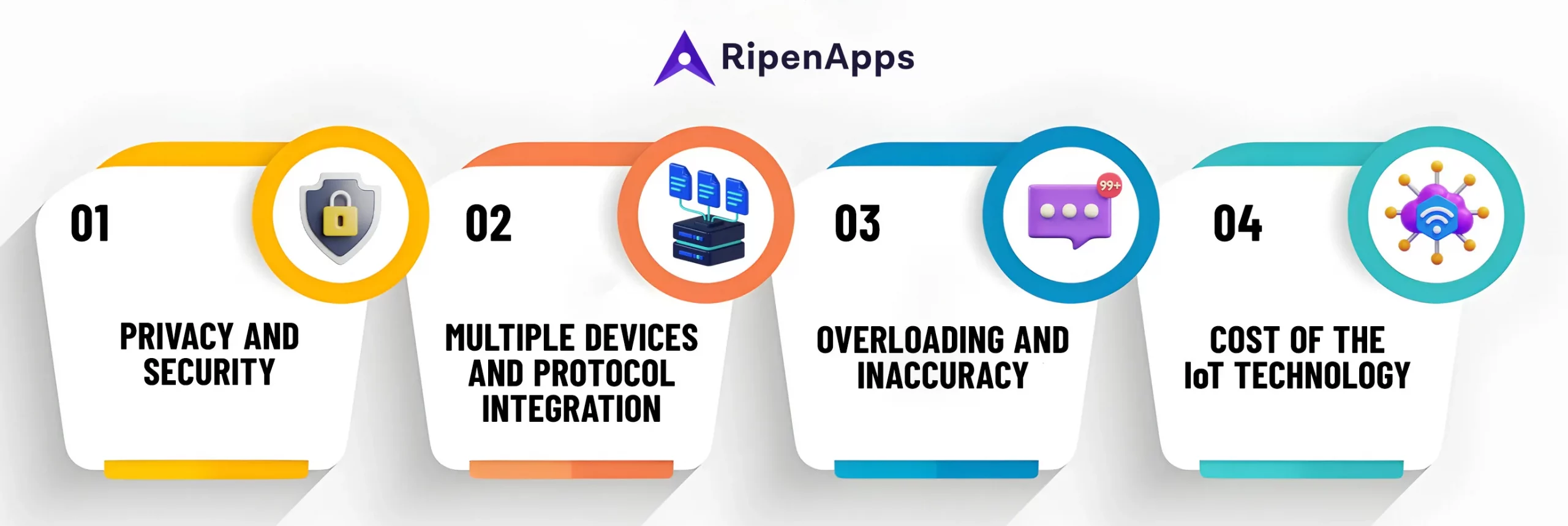
Privacy and Security
There are a lot of applications for IoT in healthcare, but it also faces big challenges. The main one is keeping data private and secure. With a high volume of data being transferred and stored, there is a risk of cyber attackers getting hold of it and using it in harmful ways.
For example, hackers might make fake identities to buy medicines and then misuse them. There is one solution and that is to follow the rules fixed by the government on data privacy.
Read Also: 5 Major IoT Security Challenges: Learn How to Tackle Them Effectively
Multiple Devices and Protocol Integration
The world of IoT in healthcare is pretty complicated. There are lots of different devices, ways they talk to each other, and rules they follow. This can make it tough to add IoT stuff to the healthcare systems we already have. Plus, some IoT devices don’t even speak the same language, which makes it even trickier to fit them together.
To deal with all this, healthcare groups need to team up with smart companies that know their way around IoT. These experts can help pick the right devices and figure out how to fit them into existing healthcare systems. Only by teaming up with these experts can medical groups make the most of what IoT has to offer in healthcare.
Read Also: How IoT is Used in Modern AI Applications?
Overloading and Inaccuracy
Storing patient data can be overwhelming because there’s just so much of it. The more you collect data from IoT devices, the harder it is to handle and understand it all.
All this makes it tough for doctors to make decisions and could even lead to wrong diagnoses. Also, sometimes IoT devices in healthcare don’t give accurate information, which can mess up the data. Accurate data is important to think carefully about how you use IoT in healthcare to avoid these problems.
Cost of the IoT Technology
You might be surprised to see costs listed as a challenge for IoT, but it’s true. While IoT has the potential to make healthcare more affordable for everyday people, it’s still a work in progress. It takes time to make healthcare with IoT cost-effective. As a result, some people are traveling to developing countries to get treatment because it’s cheaper there.
How has IoT in Healthcare Apps Been Used?
Increase your accessibility of your healthcare business through IoT devices in healthcare. Internet of Things devices are great for understanding the diagnoses more closely. Here are some use cases you can think of using IoT in healthcare.
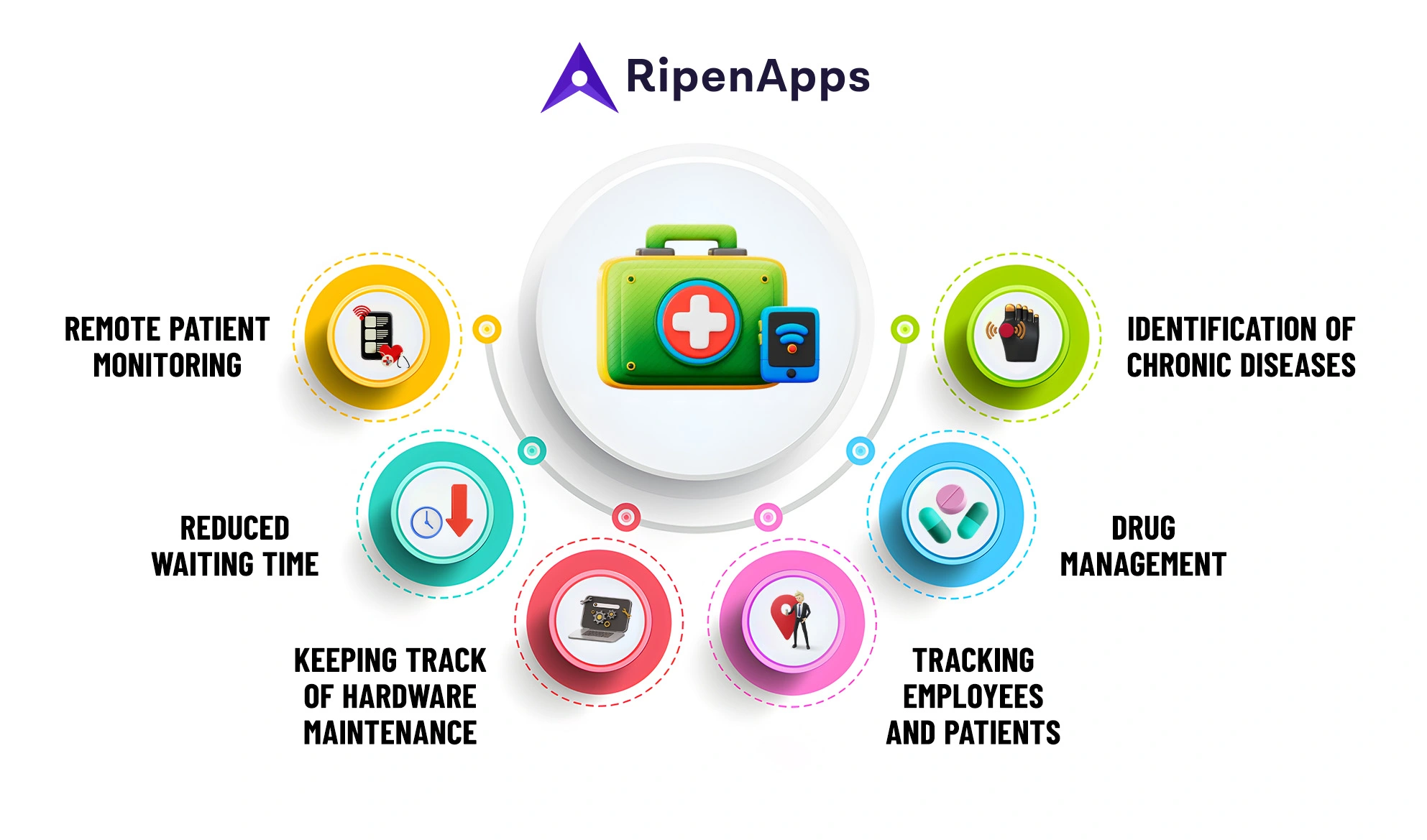
Remote Patient Monitoring
The main thing a healthcare app development company often focuses on with IoT is keeping an eye on patients from afar. They develop IoT in healthcare that can gather important health info like blood pressure, heart rate, and temperature from patients who aren’t at the hospital. Then, smart algorithms can check out this info, suggest treatment, or send alerts if something seems off.
Read Also: IoT App Development: Useful Tips for Building Top-Notch IoT Apps
Reduced Waiting Time
Patient satisfaction is really important in healthcare, and one way to make patients happier is by cutting down on how long they have to wait. IoT in healthcare can help with this in a few ways. For instance, using IoT to check in patients can make the registration process faster.
Also, IoT devices can keep track of where patients and staff are in real time, which helps hospitals manage how patients move around the building. By making waiting times shorter, IoT can make patients happier and boost their satisfaction with their healthcare experience.
Keeping Track of Hardware Maintenance
In healthcare, one big use of IoMT is keeping track of equipment maintenance. Picture a hospital with loads of medical gear. It can be hard for staff to remember which medical equipment is placed where. IoT devices can be integrated into them and attached to a mobile application.
But with IoT in healthcare, each piece of gear could have a sensor sending info to a central database. The database helps in creating a report that helps staff to identify the medical equipment, that needs more attention. This ensures everything stays in good shape and lowers the chance of equipment breaking down. In hospitals, even a short equipment failure can be really serious, so a system like this could save lives.
Tracking Employees And Patients
Hospitals are big places, making it hard to know where everyone is at any given time. But with IoT in healthcare, keeping tabs on patients and staff is simple. This tech also helps keep track of the hospital’s staff for safety reasons. It’s super efficient, letting you track things or people without needing extra money or work.
Read Also: Advancing Patient-Centered Healthcare by Leveraging AI in Healthcare App Development
Drug Management
With IoT devices in healthcare, patients can get instant alerts reminding them to take their medication. These devices also help keep track of whether patients are taking their medication as prescribed and can spot any problems with drug therapy.
Furthermore, IoT can watch over how medications are stored and moved around, making sure they’re kept at the right temperature and safe from tampering. By making drug management better, IoT in healthcare could make patients healthier and save money.
Identification of Chronic Diseases
Healthcare technology using the Internet of Things (IoT) can recognize chronic illnesses in patients. When a patient inputs their symptoms, IoT devices compare them to existing data to figure out the illness.
Wearable gadgets keep tabs on things like heart rate, blood sugar, and blood pressure. Developing healthcare apps for wearables and smartphones has made people more mindful of their health and aware of their medical conditions.
C-Suite Strategies for Effective Embedded IoT in Healthcare
Cost savings
Embedding IoT in healthcare can lead to significant cost savings by streamlining operations, reducing manual tasks, and optimizing resource utilization. For example, IoT-enabled equipment maintenance can help prevent breakdowns, saving on repair costs and avoiding expensive downtime.
Enhances the Capabilities of Preventive Medicine
IoT in healthcare allows for continuous monitoring of patient health indicators. And also enabling early detection of potential health issues. These IoT devices identify the risks before the situation can escalate. Medical professionals take the necessary actions for better health outcomes and reduce healthcare costs in the long run.
Increased Hospital Staff Versatility and Alertness
IoT devices can automate routine tasks and provide real-time alerts, allowing hospital staff to focus on critical patient care tasks. This increased efficiency and responsiveness can improve overall patient care quality and satisfaction.
Drug and Medical Equipment Management
IoT solutions actively track the location and condition of drugs and medical equipment in real-time, thereby reducing the risk of loss, theft, or expiration. This ensures effective resource utilization and minimizes unnecessary expenses associated with inventory management.
Reducing Errors
IoT in healthcare can help minimize errors in healthcare processes by automating data collection, analysis, and decision-making. For example, automated medication dispensing systems can reduce the risk of dosage errors, improving patient safety and reducing the likelihood of adverse events.
Patient Data Collection is Speed Up
IoT in healthcare, patient data can be collected in real-time, providing healthcare professionals with up-to-date information for decision-making. This accelerated data collection process enables faster diagnosis and treatment, leading to improved patient outcomes and satisfaction.
Read Also: Top IoT Trends For Businesses To Maximize Connected Experience
Final Thoughts
If you are thinking of incorporating IoT in healthcare, then you need to understand the whole space about it. If IoT devices bring benefits then also it brings challenges to the business.
And the foremost challenge that comes is the development process. For this issue, only an IoT app development company can help you overcome this challenge. They have prior work experience in the IoT industry. They understand the recent trends and integrate them into your project.
In the end, connect with top mobile app development companies will help you tackle even the most complex project and bring your IoT healthcare ideas to life.
FAQs
Q1 . How has healthcare utilized IoT?
In healthcare, the Internet of Things (IoT) offers various applications that benefit patients, doctors, medical staff, families, and insurance companies. It helps track important data and updates for individuals, ensuring healthcare professionals remain vigilant to avoid any oversight.
Q2. How will the Internet of Things (IoT) affect healthcare?
Modern healthcare IoT solutions significantly improve patient care by enabling real-time monitoring, introducing smart pills, managing diabetes, using smartwatches to address major depressive disorder (MDD), and monitoring blood pressure.
Q3. What is smart technology in healthcare?
Smart technology in healthcare employs modern methods to enhance patient workflow. It utilizes wearable devices with IoT capabilities to access extensive information, provide automated responses, and facilitate communication between relevant parties or institutions, thereby improving accuracy and speed in healthcare processes.
Q4. Why is IoT in healthcare important?
IoT plays a crucial role in healthcare by enabling convenient monitoring of patients, facilitating preventive measures, and aiding in prognosis and diagnosis through the collection of data from devices and wearables. It enhances the quality of healthcare delivery and drives digital transformation in the industry.
Q5. How is IoT in healthcare beneficial?
IoT offers numerous advantages across various industries, including:
- Facilitating communication expansion
- Gathering vast amounts of data
- Automating responses
- Monitoring activities and habits
- Saving time and money
- Enhancing quality of life
- Driving digital transformation in healthcare.


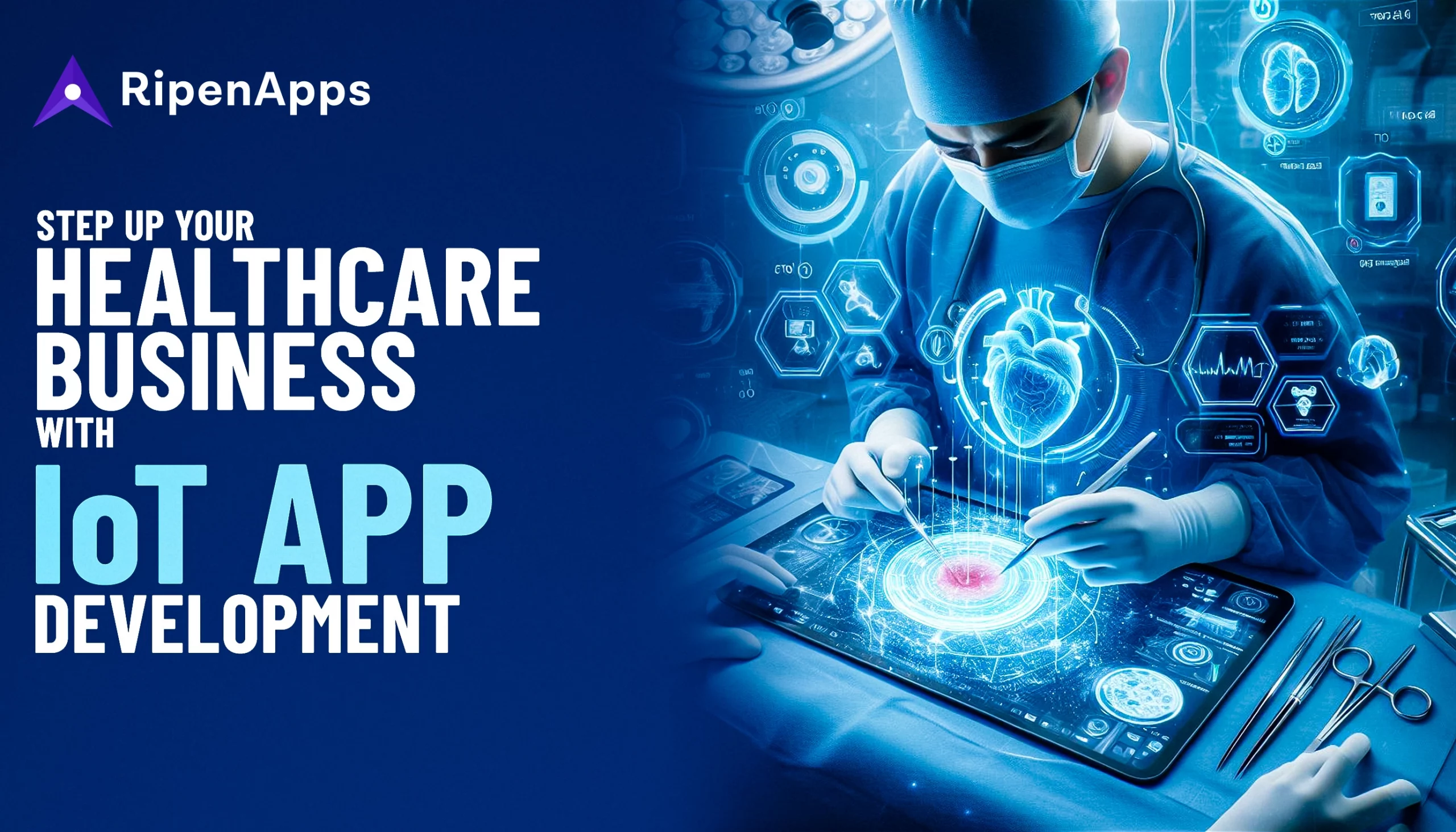
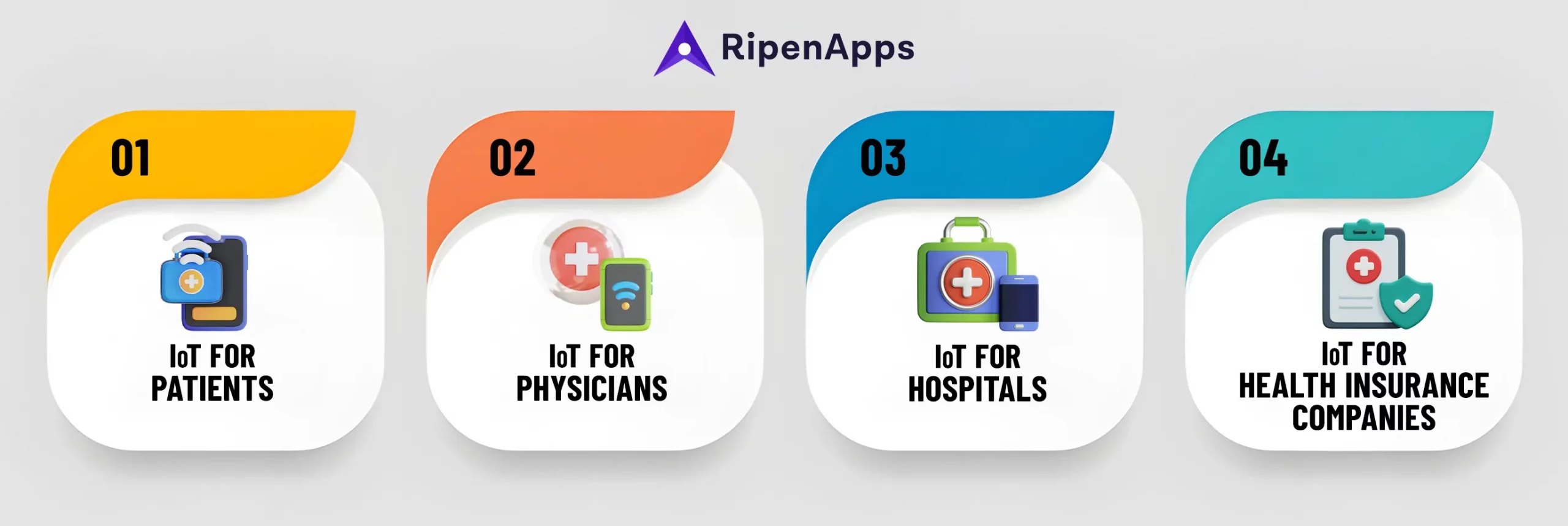

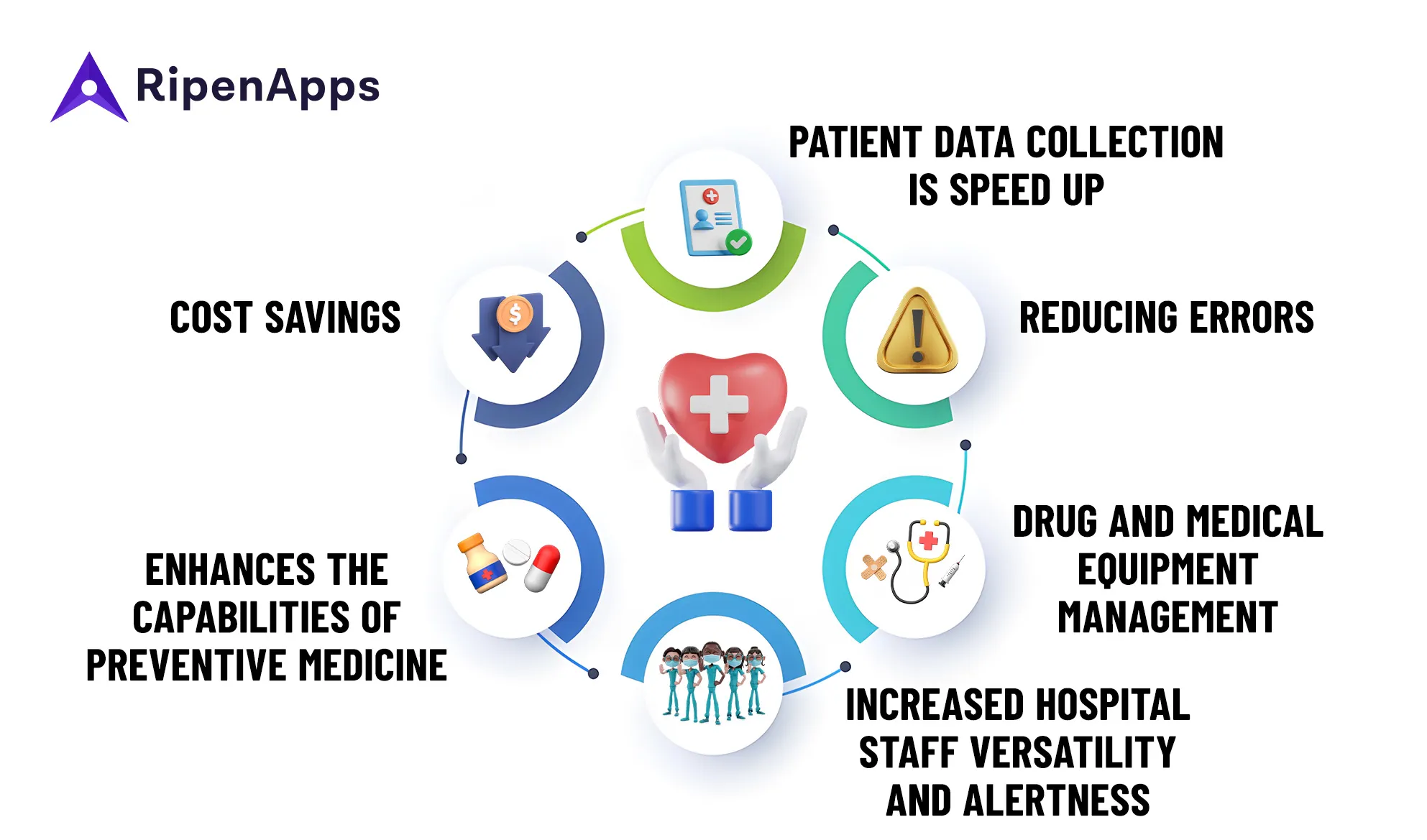




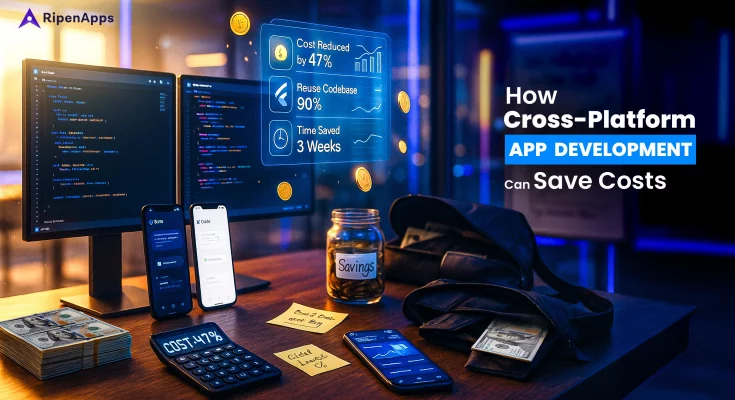
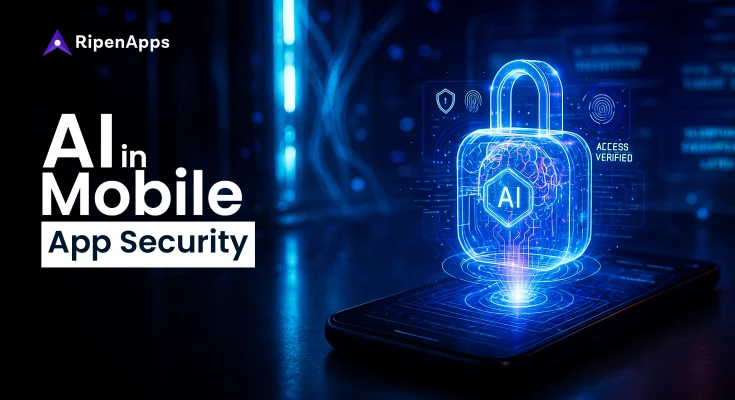
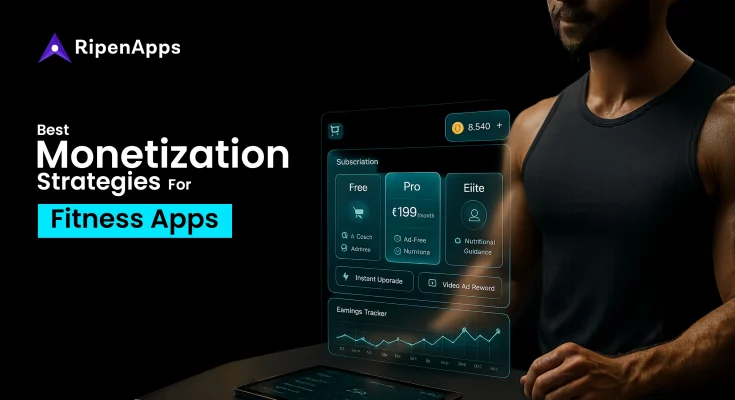

 India
India USA
USA Australia
Australia Canada
Canada UK
UK UAE
UAE
